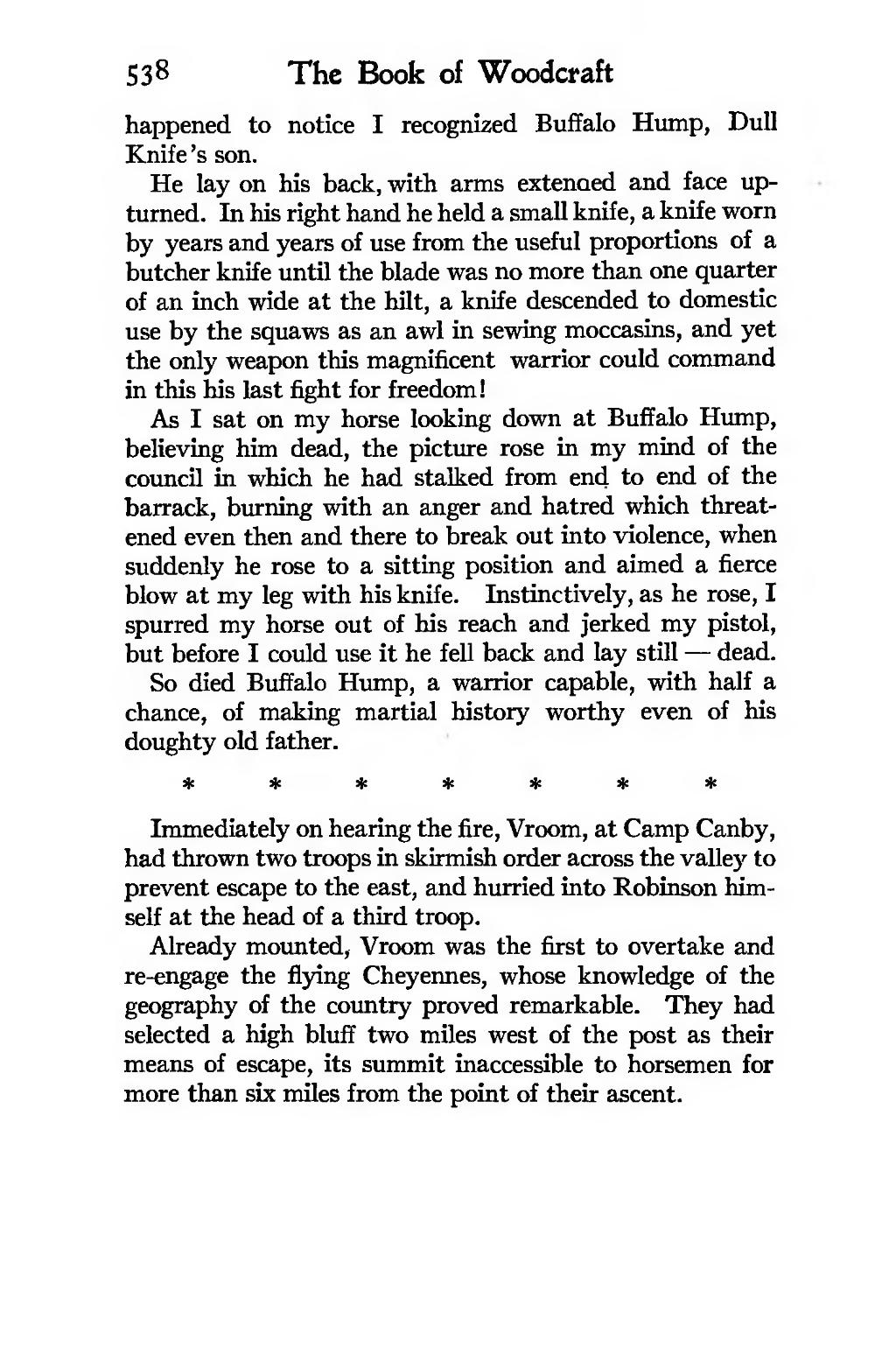538 The Book of Woodcraft happened to notice I recognized Buffalo Hump, Dull Knife's son. He lay on his back, with arms extenaed and face up- turned. In his right hand he held a small knife, a knife worn by years and years of use from the useful proportions of a butcher knife until the blade was no more than one quarter of an inch wide at the hilt, a knife descended to domestic use by the squaws as an awl in sewing moccasins, and yet the only weapon this magnificent warrior could command in this his last fight for freedom ! As I sat on my horse looking down at Buffalo Hump, believing him dead, the picture rose in my mind of the council in which he had stalked from end to end of the barrack, burning with an anger and hatred which threat- ened even then and there to break out into violence, when suddenly he rose to a sitting position and aimed a fierce blow at my leg with his knife. Instinctively, as he rose, I spurred my horse out of his reach and jerked my pistol, but before I could use it he fell back and lay still — dead. So died Buffalo Hump, a warrior capable, with half a chance, of making martial history worthy even of his doughty old father. Immediately on hearing the fire, Vroom, at Camp Canby, had thrown two troops in skirmish order across the valley to prevent escape to the east, and hurried into Robinson him- self at the head of a third troop. Already mounted, Vroom was the first to overtake and re-engage the flying Cheyennes, whose knowledge of the geography of the country proved remarkable. They had selected a high bluff two miles west of the post as their means of escape, its summit inaccessible to horsemen for more than six miles from the point of their ascent.
Stránka:book 1913.djvu/560
Z thewoodcraft.org
Jmenné prostory
Více
- Více
Možnosti stránky
Verze z 3. 12. 2016, 00:14, kterou vytvořil Tuwanakha (diskuse | příspěvky) (→Nebylo zkontrolováno: Založena nová stránka s textem „538 The Book of Woodcraft happened to notice I recognized Buffalo Hump, Dull Knife's son. He lay on his back, with arms extenaed and face up- turned. I…“)
(rozdíl) ← Starší verze | zobrazit aktuální verzi (rozdíl) | Novější verze → (rozdíl)
Tato stránka nebyla zkontrolována
